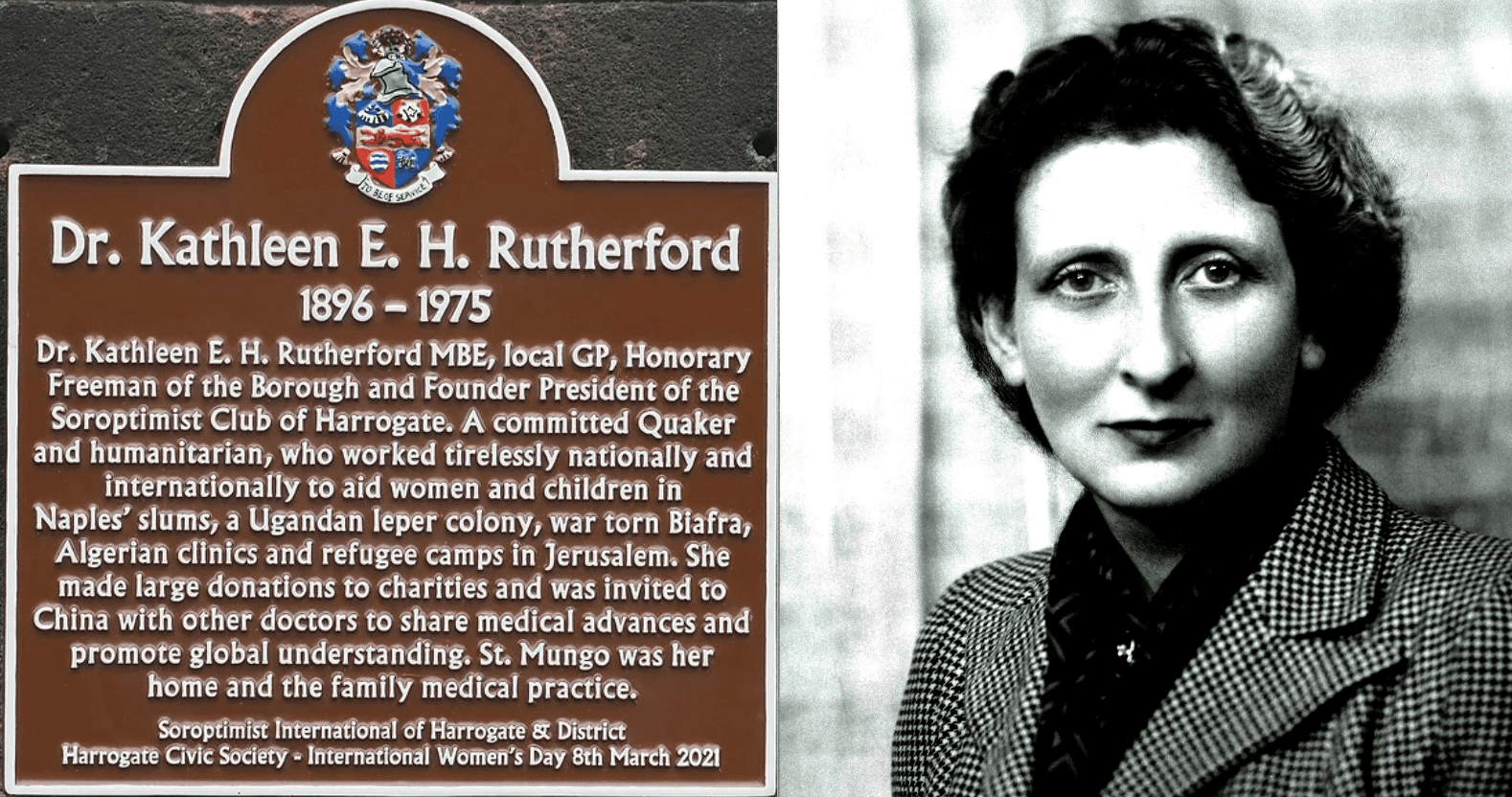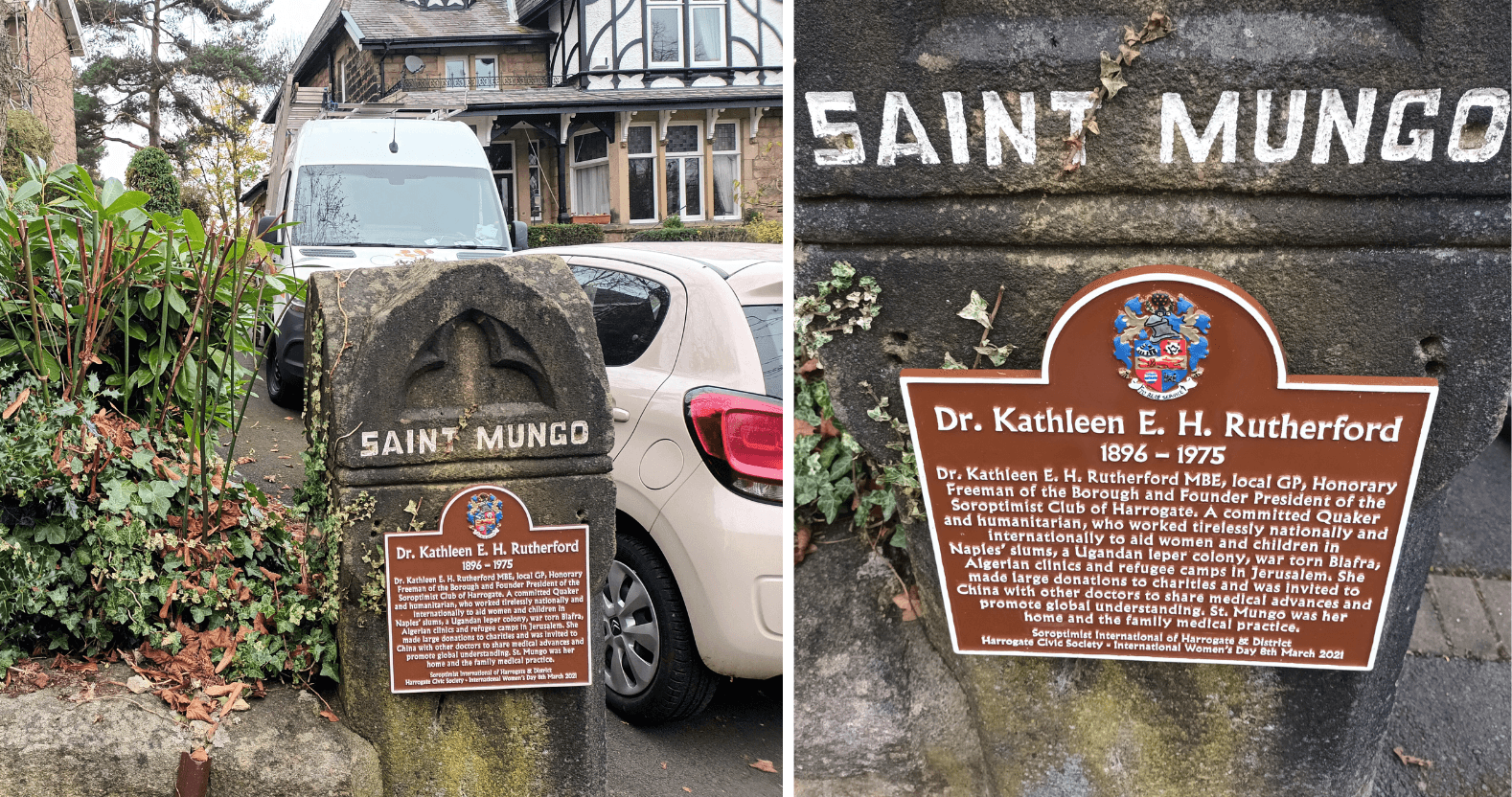Subscribe to trusted local news
In a time of both misinformation and too much information, quality journalism is more crucial than ever. By subscribing, you can help us get the story right.
- Subscription costs less than £1 a week with an annual plan.
Already a subscriber? Log in here.
16
Nov 2024
Local history spotlight Harrogate: Dr Kathleen Rutherford MBE

Nairobi to Naples, Algeria to Uganda – while Dr Kathleen Rutherford’s humanitarian work can be traced across the globe, it is here in Harrogate where she is perhaps best remembered.
We’ve previously shone a spotlight on another influential female figure in the medical field - Dr Laura Veale, the first female doctor in North Yorkshire, born in Hampsthwaite.
Although she and Dr Rutherford come from different generations, they share much in common – both were high-flyers, trailblazers in their field, and important figures in the local community.
Early life
Rutherford was born on June 19, 1896, in Glasgow, although she spent her childhood in Harrogate. Her parents were well-accomplished in their own right; her father was a GP, and her mother was a doctor of philosophy.
She grew up in an era in which women were campaigning for voting rights, so her ambition to enter the medical profession – a male-dominated career – was still unusual for the time.
Undeterred, she returned to Glasgow to study medicine, graduating in 1920, before taking the MB and ChB Glasgow and Leeds the following year.
After a number of hospital postings, she returned to Harrogate and joined the family’s practice – Saint Mungo’s, located on York Road.
Charity work
Humanitarian aid was a principle that underpinned most of Rutherford’s life. In 1933 she founded the Harrogate branch of Soroptimist International, a global volunteer service for women, later becoming its first president.
Described by Harrogate and District’s Soroptimists as ‘an impenitent idealist, internationalist and committed Quaker’, she committed herself thoroughly to numerous causes in her lifetime.
Before the outbreak of World War Two, she joined the Women’s Peace Movement and spoke at a public meeting titled ‘Is War The Only Way?’.

The plaque, installed outside Dr Rutherford's former home and GP practice
Astonishingly, she actually attended a rally at Nuremberg in 1938 on the invitation of Adolf Hitler himself, after she wrote a letter to him addressing the political climate.
As a lifelong pacifist, it must have been a surreal experience, although Rutherford admitted she still did not believe that war was coming, and that it could perhaps be avoided.
Speaking in a 1970 television interview for a Yorkshire Calender (ITV) programme, she said:
It didn't frighten me half as much as it does now - I maybe had more faith in humanity than I do now.
During and after the conflict she appealed for donations of food, clothing and medical equipment to be sent over to Europe.
In 1962 she was bequeathed £42,000 – more than £750,000 today – in the will of a friend and former patient, a substantial sum of money which she immediately put to use.
She split a large portion between various charities, including Famine Relief, War on Want and Save the Children, as well as donating generously to convents and missionaries across the world, including to many organisations in Harrogate.
One of these was a boys' club for 'disadvantaged youths' in the town. The rest was used to fund expeditions where she could share her medical expertise.

Dr Kathleen Rutherford on the way to accept her MBE (Image: Soroptimist International)
In 1966 she made the first of many pilgrimages abroad, to Father Borelli’s House of the Urchins in Naples, where she helped to care for destitute mothers and children.
In 1967 she worked at a Ugandan colony for people with leprosy, and also travelled to Biskra, Algeria to work at an eye clinic and general practice.
Later life and legacy
In her obituary, Rutherford was described as ‘highly intelligent’ and ‘gifted’ but so dedicated to her work that she gave herself ‘and her energy, at times to the point of exhaustion’.
She never married, and in the little free time she had was said to love music, theatre, art and literature. In her later years, she continued to dedicate herself to many causes, both locally and internationally, visiting Jerusalem and China in the seventies.
In 1970 she was awarded an MBE for her medical services in underdeveloped countries, and later in the same year she was the focus of the television programme, shown on ITV.
When asked what motivated her to devote her life to humanitarian work, even in her older age, she said:
I'm so fortunate. Imagine having your health at my age - it would be a terrible betrayal if I didn't go on and do something with it.
She was so highly regarded in the local area that she was recognised as one of the last Honorary Freemen of the Borough of Harrogate in 1973.
Dr Kathleen Rutherford died in 1975, age 79. In her lifetime she made a real impact in Harrogate and beyond, but her legacy could have been lost to history.
In 2020 journalist Nicky Harley launched a campaign to recognise the ‘forgotten women’ and reached out to the Soroptimist International of Harrogate and District Club.
Her work, alongside club member Rachel Richardson’s research brought Rutherford’s life into greater focus, and with the backing of local historian Malcolm Neesam, the club approached the Harrogate Civic Society and nominated her for a brown plaque.
On March 2021, the plaque was unveiled outside Saint Mungo’s, Rutherford’s family home and general practice.
Her obituary described her as ‘a legend in her lifetime’ but thanks to a renewed dedication to bringing women’s history back into the spotlight, her legacy can continue.
Sources for this article include a post on sibi.org, an obituary published in the British Medical Journal, information on the Harrogate Civic Society website, information and research on the Soroptimist International website, compiled by Rachel Richardson and the Yorkshire Calender (ITV) programme about Dr Kathleen Rutherford's life.
0